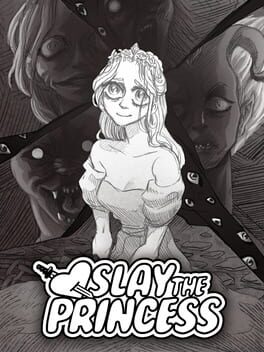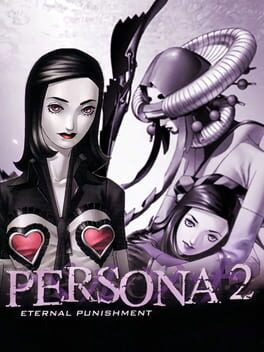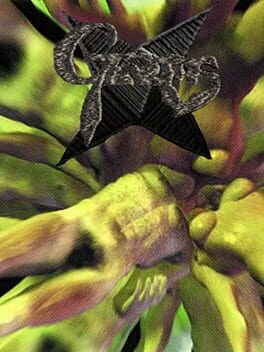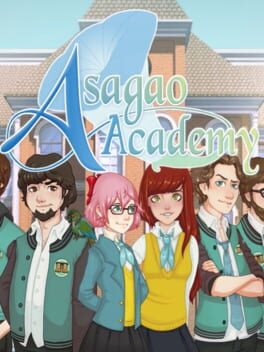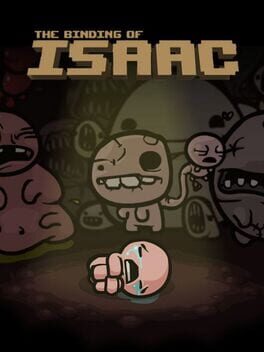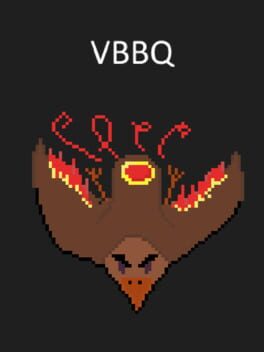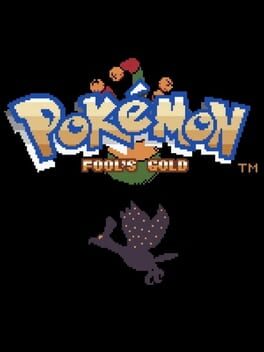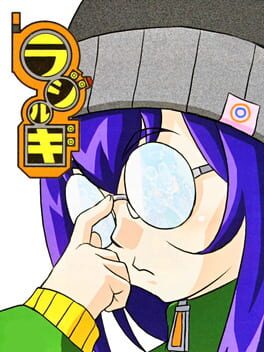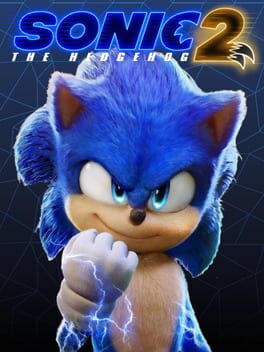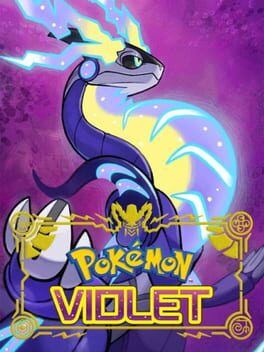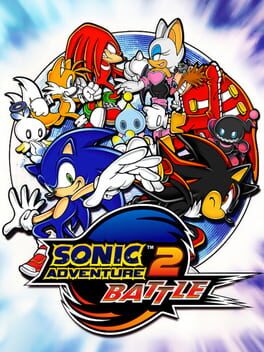slimedotcom
253 Reviews liked by slimedotcom
Slay the Princess
2023
Hey I also published a version of this with some pretty pictures on medium
At first blush Germs: Nerawareta Machi is another entry in that class of oddball PSX Japan-only curios, a game good for glancing at and then digesting into a piece of trivia or a short youtube video. "Do you know about this weird game Germs?? Check out the cover art."
When you dig deeper into it though, Germs reveals itself to be a genuinely fascinating and worthwhile work of art about the terror of change, full of ideas and ambition so great the game itself can struggle to contain it all. A team of just six developers crafted a 3D open-world narrative action-adventure game set in a single explorable city, on console, in 1999. Germs's use of space anticipates the contemplative, barren landscape of Shadow of the Colossus. It had a fully 3D drivable open world two years before Grand Theft Auto did. It features survival elements that would become ubiquitous in popular games in the 2010s. It predates Deadly Premonition by over a decade. There's still nothing quite like it.
Germs sees its protagonist coming back home after many years away. They left to work as a journalist at a respected newspaper, but all these years later a series of strange occurrences in their hometown have inspired them to return and investigate the mystery while working for the local paper. Germs opens on a foreboding note, the brooding soundscape suggesting that perhaps this old city was better left alone.
But the temptation is too great, something remarkable is definitely happening in the town. Reports have come in of a shining ball of light flying over the mountains. A strange office has appeared in town that sends emails to residents about viruses, change, evolution, and ascension. Dozens of citizens are found wandering out of the abandoned coal mine in a state of fear and confusion; nobody ever goes in but people keep coming out. A tale of invading aliens using a virus to mutate humans gets underway, and it's up to the player to get to the bottom of it all.
The player is lowered into this mystery with minimal guidance. The computer terminal at their office has a few unread emails that point in the right direction, and their assistant suggests they ask around the information center nearby, and that's it. Germs offers an open-ended adventure where the player can poke around the town at their leisure, and investigate the leads in their emails in a non-linear order.
The world outside the office is rendered in stark black and white. Recalling the paranoia of films like Invasion of the Body Snatchers and Them!, the grayscale visuals present the town as full of latent danger yet drained of energy, a place no one should inhabit. The coal mine the town was built around has long since closed down, and the rows of blocky buildings form a giant skeleton that houses only a few sources of life. The game's interior spaces are in color, as if the survivors in the town are the only remaining sparks of life hiding from the oppressive atmosphere outside. This eerie environment is one of the most striking I've ever inhabited in a videogame. It feels like a surreal nightmare bottled and preserved. The world is inert. For the protagonist, being back home is like being trapped in a faded photograph.
At the start of the game, upon receiving an email from an old friend asking the protagonist to meet them at their house, the player is faced with Germs's first and most definitive challenge: to figure out how public transportation works in the city. There are multiple bus routes, an underground metro, and a train in Germs's city, all on top of the car the player is given from the start. This series of transportation systems is realized with beautiful detail. The large scale of the city makes learning their operation essential for getting around, and their interconnections make the overall world design the greatest single aspect of Germs as a work of interactivity. This is a game that turns remembering directions for taking the subway and walking a few blocks into a thrilling experience.
Nearly as impressive is the game's approach to narrative design. Germs's narrative plays out in a modular series of events, which the player can tackle non-linearly. Each key building in the game goes through several major story states, from pre-invasion, to invasion, to liberation. Locations in Germs get recontextualized from mundane spaces to dungeons full of combat encounters, then back again, which makes the sense of invasion feel all the more real. Tied into these main beats are the stories of several characters, from some old friends of the protagonist, to a mad scientist, to a secret agent tasked with investigating the town. Their narratives progress as the player liberates buildings and visits them in optional sequences, which makes the overall narrative design lightweight and fluid, especially for a game of this era. Empowering the player to talk to people and clear out locations in the order they choose helps to ground them in the city, and allowing them to help dictate the narrative's progression makes the town feel like a real place in real danger. Finally of note is Germs's unique fail state. If the player is defeated in combat they do not get a Game Over, instead they're reborn in the coal mine as the sort of mutant they've been killing. In this state they can talk to the other mutants peacefully and carry on with their life, though they won't be able to progress further in the game until they get cured at the hospital. On top of all the other interesting things Germs was doing in 1999, it also turns a player's failure into a narratively and mechanically intriguing, thematically resonant feature, something most games two decades later are struggling to do.
Despite its achievements in narrative and world design, the game is not without its share of rough edges. The combat is clunky at best, though it doesn't commit the sin of also being challenging. Circle strafing or ducking behind corners with a decent weapon is all it takes to defeat any mutant, and frankly this is a positive. In an experience full of friction the combat itself proves mercifully straightforward.
Likewise, Germs's integration of role-playing and survival simulation mechanics is forward thinking but embryonic in execution. The player has to manage hunger that doubles for health, damage to their individual limbs, and the need for sleep. The game also features an experience point system that lets the player level up their competency with individual weapon types as they use them, increasing accuracy. The kitchen sink-ish inclusion of these elements adds to Germs's overall ambitiousness in design, but in the course of play they end up feeling a bit perfunctory. Keep your health up at restaurants, see a doctor and sleep at the end of the day, and stick to one good weapon to make it accurate, that's the extent of the decision making.
The area where Germs's various design elements do cohere into brilliance is in the interplay between the health system and the aforementioned world design. To get through a building full of mutants, the player will want as much health as possible going in, and since their health depletes slowly over time, they're incentivized to get from place to place as efficiently as possible. This means skillful play in Germs is not in the shooting, it's in the navigation. The game trains you to plan a day trip to the coal mine by learning the fastest route to a delicatessen to get food to go, then knowing which bus will get you to the closest station for the special train that heads north to the mine, and then knowing the quickest way to get back to the hotel via the subway so you can squeeze in a visit to the strange old man living near the mountains before bed.
Germs's somewhat sparse story speaks to the pain and fear that comes with change, and the fear that stasis might be even worse. Two of the major characters are old friends of the protagonist. One of them is coming back to town for a job, what else, and by the end she feels the virus welling up within her, stuck between the human she was and the deformed thing she might soon become. The other friend never left, he stayed and dried up along with his hometown, and all he has now is his endless study of the virus. Even when the invasion has been stopped and the mutants killed, he just thanks you politely before stating that he really ought to get back to his research. The alien virus engulfing the town changes the host into some other type of being, and the transformation is described by turns as either horrific or sublime, and often both. The long abandoned town is now the site of cataclysmic change, and interestingly, the protagonist has come back to their lifeless home in order to stop that change.
I come from something of a ghost town myself. It's a small place with lots of dead ends that seemed to me growing up like it was specially built to be moved away from. The idea that I could one day go back there, take up a job, and pick up my old life, gives me a sort of creeping sensation like I can feel my body decaying around me. But on the other hand as I move forward in life and set big goals that I inevitably fail to reach, I feel the fear of the unknown future, wondering if I'm up for whatever strange and difficult form it's sure to take. Germs speaks to me as an examination of that tension, staying still is unthinkable but moving forward is terrifying. The understated tragedy at the heart of Germs's slim narrative lies in how, after defeating in the final boss the part of themself that wishes to embrace the grotesque future of mutation, the protagonist dismantles the source of the change in the name of safety. The choice makes sense, it's an alien invasion after all, but what is left in the end? The game has no distinct ending, no fade to black with credits rolling. The player is just sent right back to their office at the newspaper, the only change being that the citizens are more grateful and fewer in number now. Color does not find its way back to the targeted city, it's just the same old town. No alien invasion killed this place, it was already dead. The ending of Germs: Nerawareta Machi is just that faded photograph, an endless, quiet purgatory. The future the aliens promised may have been horrific, but without it what the hell is the present? It's a brilliant, haunting non-ending that follows the player even after the game is shut off for the last time.
Germs deserves to be more than trivia. It's shockingly prescient, systems-rich, full of harmony between narrative and mechanics, and the only game from a small team of artists biting off the biggest goddamn gulp they could imagine with zero thought as to how they might chew it. I love it, it's one of the finest pieces of foreboding and alienation I've ever played.
At first blush Germs: Nerawareta Machi is another entry in that class of oddball PSX Japan-only curios, a game good for glancing at and then digesting into a piece of trivia or a short youtube video. "Do you know about this weird game Germs?? Check out the cover art."
When you dig deeper into it though, Germs reveals itself to be a genuinely fascinating and worthwhile work of art about the terror of change, full of ideas and ambition so great the game itself can struggle to contain it all. A team of just six developers crafted a 3D open-world narrative action-adventure game set in a single explorable city, on console, in 1999. Germs's use of space anticipates the contemplative, barren landscape of Shadow of the Colossus. It had a fully 3D drivable open world two years before Grand Theft Auto did. It features survival elements that would become ubiquitous in popular games in the 2010s. It predates Deadly Premonition by over a decade. There's still nothing quite like it.
Germs sees its protagonist coming back home after many years away. They left to work as a journalist at a respected newspaper, but all these years later a series of strange occurrences in their hometown have inspired them to return and investigate the mystery while working for the local paper. Germs opens on a foreboding note, the brooding soundscape suggesting that perhaps this old city was better left alone.
But the temptation is too great, something remarkable is definitely happening in the town. Reports have come in of a shining ball of light flying over the mountains. A strange office has appeared in town that sends emails to residents about viruses, change, evolution, and ascension. Dozens of citizens are found wandering out of the abandoned coal mine in a state of fear and confusion; nobody ever goes in but people keep coming out. A tale of invading aliens using a virus to mutate humans gets underway, and it's up to the player to get to the bottom of it all.
The player is lowered into this mystery with minimal guidance. The computer terminal at their office has a few unread emails that point in the right direction, and their assistant suggests they ask around the information center nearby, and that's it. Germs offers an open-ended adventure where the player can poke around the town at their leisure, and investigate the leads in their emails in a non-linear order.
The world outside the office is rendered in stark black and white. Recalling the paranoia of films like Invasion of the Body Snatchers and Them!, the grayscale visuals present the town as full of latent danger yet drained of energy, a place no one should inhabit. The coal mine the town was built around has long since closed down, and the rows of blocky buildings form a giant skeleton that houses only a few sources of life. The game's interior spaces are in color, as if the survivors in the town are the only remaining sparks of life hiding from the oppressive atmosphere outside. This eerie environment is one of the most striking I've ever inhabited in a videogame. It feels like a surreal nightmare bottled and preserved. The world is inert. For the protagonist, being back home is like being trapped in a faded photograph.
At the start of the game, upon receiving an email from an old friend asking the protagonist to meet them at their house, the player is faced with Germs's first and most definitive challenge: to figure out how public transportation works in the city. There are multiple bus routes, an underground metro, and a train in Germs's city, all on top of the car the player is given from the start. This series of transportation systems is realized with beautiful detail. The large scale of the city makes learning their operation essential for getting around, and their interconnections make the overall world design the greatest single aspect of Germs as a work of interactivity. This is a game that turns remembering directions for taking the subway and walking a few blocks into a thrilling experience.
Nearly as impressive is the game's approach to narrative design. Germs's narrative plays out in a modular series of events, which the player can tackle non-linearly. Each key building in the game goes through several major story states, from pre-invasion, to invasion, to liberation. Locations in Germs get recontextualized from mundane spaces to dungeons full of combat encounters, then back again, which makes the sense of invasion feel all the more real. Tied into these main beats are the stories of several characters, from some old friends of the protagonist, to a mad scientist, to a secret agent tasked with investigating the town. Their narratives progress as the player liberates buildings and visits them in optional sequences, which makes the overall narrative design lightweight and fluid, especially for a game of this era. Empowering the player to talk to people and clear out locations in the order they choose helps to ground them in the city, and allowing them to help dictate the narrative's progression makes the town feel like a real place in real danger. Finally of note is Germs's unique fail state. If the player is defeated in combat they do not get a Game Over, instead they're reborn in the coal mine as the sort of mutant they've been killing. In this state they can talk to the other mutants peacefully and carry on with their life, though they won't be able to progress further in the game until they get cured at the hospital. On top of all the other interesting things Germs was doing in 1999, it also turns a player's failure into a narratively and mechanically intriguing, thematically resonant feature, something most games two decades later are struggling to do.
Despite its achievements in narrative and world design, the game is not without its share of rough edges. The combat is clunky at best, though it doesn't commit the sin of also being challenging. Circle strafing or ducking behind corners with a decent weapon is all it takes to defeat any mutant, and frankly this is a positive. In an experience full of friction the combat itself proves mercifully straightforward.
Likewise, Germs's integration of role-playing and survival simulation mechanics is forward thinking but embryonic in execution. The player has to manage hunger that doubles for health, damage to their individual limbs, and the need for sleep. The game also features an experience point system that lets the player level up their competency with individual weapon types as they use them, increasing accuracy. The kitchen sink-ish inclusion of these elements adds to Germs's overall ambitiousness in design, but in the course of play they end up feeling a bit perfunctory. Keep your health up at restaurants, see a doctor and sleep at the end of the day, and stick to one good weapon to make it accurate, that's the extent of the decision making.
The area where Germs's various design elements do cohere into brilliance is in the interplay between the health system and the aforementioned world design. To get through a building full of mutants, the player will want as much health as possible going in, and since their health depletes slowly over time, they're incentivized to get from place to place as efficiently as possible. This means skillful play in Germs is not in the shooting, it's in the navigation. The game trains you to plan a day trip to the coal mine by learning the fastest route to a delicatessen to get food to go, then knowing which bus will get you to the closest station for the special train that heads north to the mine, and then knowing the quickest way to get back to the hotel via the subway so you can squeeze in a visit to the strange old man living near the mountains before bed.
Germs's somewhat sparse story speaks to the pain and fear that comes with change, and the fear that stasis might be even worse. Two of the major characters are old friends of the protagonist. One of them is coming back to town for a job, what else, and by the end she feels the virus welling up within her, stuck between the human she was and the deformed thing she might soon become. The other friend never left, he stayed and dried up along with his hometown, and all he has now is his endless study of the virus. Even when the invasion has been stopped and the mutants killed, he just thanks you politely before stating that he really ought to get back to his research. The alien virus engulfing the town changes the host into some other type of being, and the transformation is described by turns as either horrific or sublime, and often both. The long abandoned town is now the site of cataclysmic change, and interestingly, the protagonist has come back to their lifeless home in order to stop that change.
I come from something of a ghost town myself. It's a small place with lots of dead ends that seemed to me growing up like it was specially built to be moved away from. The idea that I could one day go back there, take up a job, and pick up my old life, gives me a sort of creeping sensation like I can feel my body decaying around me. But on the other hand as I move forward in life and set big goals that I inevitably fail to reach, I feel the fear of the unknown future, wondering if I'm up for whatever strange and difficult form it's sure to take. Germs speaks to me as an examination of that tension, staying still is unthinkable but moving forward is terrifying. The understated tragedy at the heart of Germs's slim narrative lies in how, after defeating in the final boss the part of themself that wishes to embrace the grotesque future of mutation, the protagonist dismantles the source of the change in the name of safety. The choice makes sense, it's an alien invasion after all, but what is left in the end? The game has no distinct ending, no fade to black with credits rolling. The player is just sent right back to their office at the newspaper, the only change being that the citizens are more grateful and fewer in number now. Color does not find its way back to the targeted city, it's just the same old town. No alien invasion killed this place, it was already dead. The ending of Germs: Nerawareta Machi is just that faded photograph, an endless, quiet purgatory. The future the aliens promised may have been horrific, but without it what the hell is the present? It's a brilliant, haunting non-ending that follows the player even after the game is shut off for the last time.
Germs deserves to be more than trivia. It's shockingly prescient, systems-rich, full of harmony between narrative and mechanics, and the only game from a small team of artists biting off the biggest goddamn gulp they could imagine with zero thought as to how they might chew it. I love it, it's one of the finest pieces of foreboding and alienation I've ever played.
The Binding of Isaac
2011
One part scathing histrionic takedown of the beloved Anas platyrhynchos, one part genre innovator that challenges the preconceptions of what it means to be a "rouge-like indie game."
I was immediately gumbersmucked by the title screen backing track, a haunting declaration of the core themes the game will confidently tackle throughout its ~10 hour runtime.
While drawing from other popular rogue-likes the level of choice at every intersection is staggering! Do I burn the trees? Eat them? Chop them down for some wood? The choice is yours. Here's the catch: the same answers will almost never lead to the exact same results. If try to burn those trees again they may get the jump on you and attack!
This brings me to the combat. All I can say is wow what a doozy. Simple on the surface but bonecrushing and strategic when you get to the meat and potatoes of it all. Borrowing from the obscure cult-like wonder RPG known as Earthbound the game implements a rolling HP meter. Well... not quite, in fact it's nothing like that, quite the opposite. Using items that restore more HP (such as Feastables sponsored by the internet superstar Mr. Beast) than your limit will actually allow it to overflow and increase your max health. Now that's what I call ingenuity!
Multiple endings aren't new in the realm of video games but the method at which Bird Quest handles them is absolutely masterful. Bird Quest asks the tough questions: do you TRULY understand yourself? Do you understand BIRDS? Personally I decided to align myself with Bird as I empathized with his plight. Little did I know I would be attacked by an opposing faction championing ideals such as law and rules. Zionism? Not on their watch. I wiped the floor with those vermin as me and Bird danced on their graves and stirred up chaos in their wake.
The Phoenix Rises
I was immediately gumbersmucked by the title screen backing track, a haunting declaration of the core themes the game will confidently tackle throughout its ~10 hour runtime.
While drawing from other popular rogue-likes the level of choice at every intersection is staggering! Do I burn the trees? Eat them? Chop them down for some wood? The choice is yours. Here's the catch: the same answers will almost never lead to the exact same results. If try to burn those trees again they may get the jump on you and attack!
This brings me to the combat. All I can say is wow what a doozy. Simple on the surface but bonecrushing and strategic when you get to the meat and potatoes of it all. Borrowing from the obscure cult-like wonder RPG known as Earthbound the game implements a rolling HP meter. Well... not quite, in fact it's nothing like that, quite the opposite. Using items that restore more HP (such as Feastables sponsored by the internet superstar Mr. Beast) than your limit will actually allow it to overflow and increase your max health. Now that's what I call ingenuity!
Multiple endings aren't new in the realm of video games but the method at which Bird Quest handles them is absolutely masterful. Bird Quest asks the tough questions: do you TRULY understand yourself? Do you understand BIRDS? Personally I decided to align myself with Bird as I empathized with his plight. Little did I know I would be attacked by an opposing faction championing ideals such as law and rules. Zionism? Not on their watch. I wiped the floor with those vermin as me and Bird danced on their graves and stirred up chaos in their wake.
The Phoenix Rises
Pokémon: Fool's Gold
2020
Radirgy
2005
Sonic the Hedgehog 2
2022
Pokémon Violet
2022
it's so so close to being awesome, but it runs so badly and its presentation in general is so far under par that it winds up feeling sad in a way. there are aspects of it that are enjoyable and cool for sure - the general exploration and snappiness of gameplay, the tendency to let the game shut up, and even the writing somehow - but everything besides those things came across as needing to be in the oven for much longer. like it boggles my mind that a pokemon soundtrack can drop and be so consistently worse than mid, yet we somehow got that. nothing in the game scales, and that choice is one I'm super mixed on. the designs look terrible to me. the list goes on.
more than anything, though, I think this game was a good final hurrah for me with this franchise. I'm not going to turn around and fully stop caring at all since pokemon still has been a big part of my life (and pmd isn't dead yet), but I have to thank this generation for finally revealing that there don't need to be any more airs put on that the franchise is keeping the things that I fell in love with it for. I don't have to scrutinize it much anymore in the way I did for generations 6-8 and I don't have to feel the need to pick up any of the newer releases in hopes that they've realized the world is what makes pokemon so special. from the mcdonald's playplace region with all the biomes in a disc shape to the meme tier pokemon designs and names to the lore just generally not trying to make sense anymore, I think it's easy to acknowledge that now pokemon as it once was is wholly over. hell, even for the anime i've heard rumors that ash may retire, and now we've even reached over 1000 pokemon - a huge milestone. oras is what started the decline of the worldbuilding this series was so great at, but i think this is the proper turning point game that is a lot of fun and one last fun ride before getting off and moving on. i appreciate it a lot for that. maybe going forward tpci will let game freak put more time into their games to let them truly shine in ways this game clearly wanted to.
more than anything, though, I think this game was a good final hurrah for me with this franchise. I'm not going to turn around and fully stop caring at all since pokemon still has been a big part of my life (and pmd isn't dead yet), but I have to thank this generation for finally revealing that there don't need to be any more airs put on that the franchise is keeping the things that I fell in love with it for. I don't have to scrutinize it much anymore in the way I did for generations 6-8 and I don't have to feel the need to pick up any of the newer releases in hopes that they've realized the world is what makes pokemon so special. from the mcdonald's playplace region with all the biomes in a disc shape to the meme tier pokemon designs and names to the lore just generally not trying to make sense anymore, I think it's easy to acknowledge that now pokemon as it once was is wholly over. hell, even for the anime i've heard rumors that ash may retire, and now we've even reached over 1000 pokemon - a huge milestone. oras is what started the decline of the worldbuilding this series was so great at, but i think this is the proper turning point game that is a lot of fun and one last fun ride before getting off and moving on. i appreciate it a lot for that. maybe going forward tpci will let game freak put more time into their games to let them truly shine in ways this game clearly wanted to.
has an industrial harbor level but features zero intermodal containers. if you put meteor herd OR mad space in a 10/10 game, either would drag it down to a 7/10. the tails stages are like filing unemployment paperwork and the knuckles stages are like having dreams about your old department store job, which makes the sonic stages like the distant dying memories of your fondest ten minute smoke breaks. ive watched SOV basement gore movies with better audio mixing. anyway its pretty good. i like rouge the bat.
Pokémon: Fool's Gold
2020
Has some really great monster design, first of all; would adore to see the team behind this do their own game instead of expanding on this. Honestly was just really nice, as someone who almost never meshes well with Pokémon ROMhacks, this was perfect for me. It’s a scenario I know well, the Crystal Version’s story, so I can kind of not waste time figuring out what to do because I already know, so I just get to enjoy this artificial simulation of seeing a new Pokémon for the first time over and over :)
A lot of hacks try and mix old Pokémon with “Fakémon,” and sometimes the clashing design styles of official and fanmade creatures is stark. So, why not just remix all of the Pokémon? Take an original design’s general idea and stir it up! Porygon is a computer duck, so why not mix it up by making him Normal- and Water-type. Now he’s just a funky duck!!! And it’s the best shit ever! A really great vibe from this one, some of the spritework is really amazing. I always hate composing a team on the fly, though, and I have other games I want to prioritize, so I’ll come back to this one when I can take a look at the Pokédex and plan a team and zoom through.
A lot of hacks try and mix old Pokémon with “Fakémon,” and sometimes the clashing design styles of official and fanmade creatures is stark. So, why not just remix all of the Pokémon? Take an original design’s general idea and stir it up! Porygon is a computer duck, so why not mix it up by making him Normal- and Water-type. Now he’s just a funky duck!!! And it’s the best shit ever! A really great vibe from this one, some of the spritework is really amazing. I always hate composing a team on the fly, though, and I have other games I want to prioritize, so I’ll come back to this one when I can take a look at the Pokédex and plan a team and zoom through.
